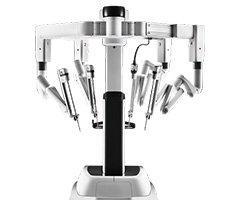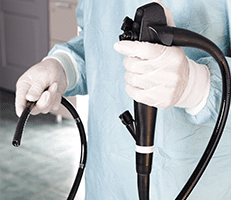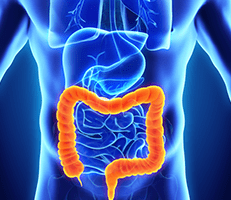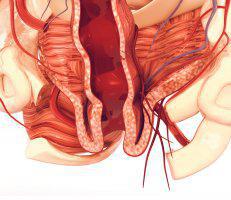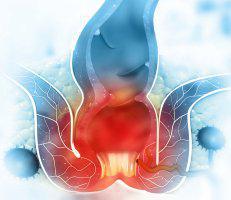Rectal Cancer Specialist

Yosef Y Nasseri, MD
Minimally Invasive and Robotic Colorectal
Surgeon & Robotic Surgeon located in Los
Angeles, CA
Rectal Cancer Q & A
What is rectal cancer?
Rectal cancer is characterized by uncontrolled cell growth originating in the lower part of your colon. Your rectum is the final five to six inches of the large intestine that ends in your anus.
Most cases of rectal cancer begin with the appearance of polyps along the inside of your rectum. Polyps are small growths that often aren’t cancerous but can develop into cancer. Once they become large and cancerous, you might notice symptoms that prompt you to seek a diagnosis.
Dr. Nasseri is a nationally-recognized expert in rectal cancer surgery and minimally invasive methods of treatment. Other physicians refer challenging cases of rectal cancer to him, including patients with prior abdominal surgeries and obese patients.
How is rectal cancer diagnosed?
Rectal cancer may or may not come with symptoms, even in its later stages. Possible symptoms of rectal cancer include:
- Blood in your stool
- Unexplained weight loss
- Anemia (not enough red blood cells resulting in fatigue and trouble breathing)
- Stomach pain or bloating
- Fecal incontinence
- Constipation
- Diarrhea
If Dr. Nasseri suspects that rectal cancer is a possibility, he may order a colonoscopy. A colonoscopy is a diagnostic procedure involving a thin, illuminated tube with a camera on the end. Dr. Nasseri uses it to view the inside of your rectum and look for polyps. If he finds any suspicious tissue, he takes a biopsy for analysis in a laboratory.
What are my treatment options for rectal cancer?
For rectal cancer, Dr. Nasseri often recommends several treatments for your plan. Your treatment depends on the stage of your cancer, your age, your general health, and other factors. In your case, he might recommend:
Robotic surgery
Dr. Nasseri may recommend robotic surgery to remove the cancerous tissue from your rectum. Robotic surgery allows him to keep as much healthy tissue as possible intact and help you avoid a colostomy.
Chemotherapy
Chemotherapy is a treatment for many types of cancer. It involves one or more drugs that target and kill cancer cells.
Radiation therapy
Radiation therapy is often recommended at the same time as chemotherapy. It uses powerful beams of energy to target and kill cancer cells.
For top-quality rectal cancer diagnostics and treatment, call Yosef Nasseri, MD, or request an appointment online today.


